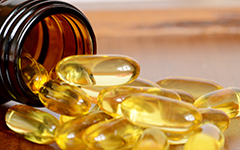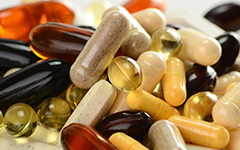CBD products: What are they and can I take them?
There is a growing number of cannabidiol (CBD) products that can be purchased in forms such as oils, extracts, vape and e-liquids available on the market, but what exactly are they and can athletes use them safely within the rules of anti-doping?
What is cannabidiol (CBD)?
CBD is one of around 110 known cannabinoids produced by the cannabis plant. It has a different chemical structure to THC, which is the psychoactive compound that illicit drug users use to get “high”. CBD does not have this effect.
What is the status of cannabidiol (CBD) in sport?
CBD is not currently listed on the World Anti-Doping Agency’s Prohibited List, and so is permitted to use in sport. All other cannabinoids (including, but not limited to, cannabis, hashish, marijuana, and THC) are prohibited in-competition.
THC is a ‘threshold substance’, which is reported as an Adverse Analytical Finding (AAF) when present in urine at concentrations of greater than 150 nanograms per milliliter. Other cannabinoids on the Prohibited List do not have a reporting threshold, meaning that the detection of even the smallest amount in urine will be considered as an AAF.
What is the composition of cannabidiol (CBD) products?
It is difficult to extract only CBD from the cannabis plant, so most CBD products will contain a mixture of compounds that are derived from the plant, including THC. CBD products that are derived from industrial hemp claim to contain low concentrations of THC. However, the following factors may influence the levels of THC within CBD products:
• The variety of the plant used
• The part of the plant used
• The refinement process used by the manufacturer
• The preparation of the product
These factors make it challenging to provide a definitive answer on whether use of a product would lead an athlete to ingest enough THC to incur an AAF, should they be drug tested in-competition.
What are the risks of athletes using cannabidiol (CBD) products?
Despite the permitted status of CBD, there is still a risk to athletes using CBD products. Athletes must still consider the risk of inadvertently ingesting a CBD product that either has a higher THC concentration than expected or contains another cannabinoid that is prohibited in sport.
This may occur if:
• a product becomes contaminated with a different species of plant that has a high-THC concentration; or
• the wrong part of the cannabis plant is used during the manufacturing process (due to misidentification).
Indeed, the FDA (US Food and Drug Administration) routinely publish quality control issues found in US manufactured CBD products. The same risks apply to UK manufactured products.
A study published by the Journal of the American Medical Association in 2017 documented the detection of THC in some CBD products at levels higher than is currently permitted by the FDA.
A study published by Forensic Science International in 2018 also detected 5F-ADB (a prohibited cannabinoid) in commercially available CBD e-liquids in the US.
What is UK Anti-Doping’s position regarding the use of cannabidiol (CBD) products in sport?
The use of any CBD product is at your own risk as an athlete, all athletes must adhere to the principle of strict liability and are solely responsible for any substances found in their system.
As a result, CBD products should be considered in the same way as all other dietary supplements - that strict liability will still apply, and the appropriate sanctions will be imposed on any athlete returning an AAF from any supplement product, as with all other cases of doping.
Glossary
Adverse Analytical Finding (AAF)
A doping control sample that shows the presence of a prohibited substance or its metabolites or markers (including elevated quantities of endogenous substances) or evidence of the use of a prohibited method following testing and its subsequent report. An adverse analytical finding does not necessarily lead to an anti-doping rule violation, since an athlete may have a Therapeutic Use Exemption (TUE) for this particular substance.
Threshold substance
A substance which will only report as an Adverse Analytical Findings (AAF) if found above a specified concentration within a sample.
WADA Prohibited List
The List which identifies the substances and methods prohibited in sport. The Prohibited List is one of the six WADA International Standards and is mandatory for signatories to the World Anti-Doping Code. The Prohibited List is consulted on annually and updated every year on 1 January.



